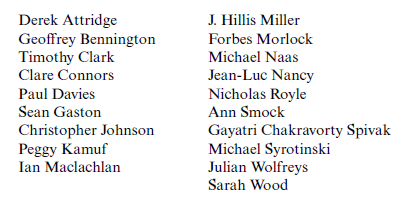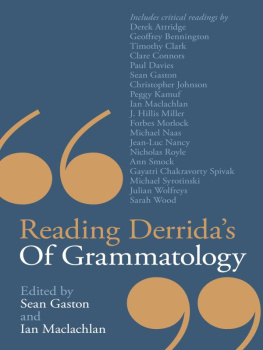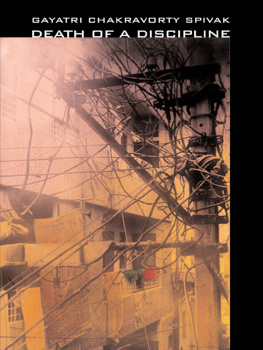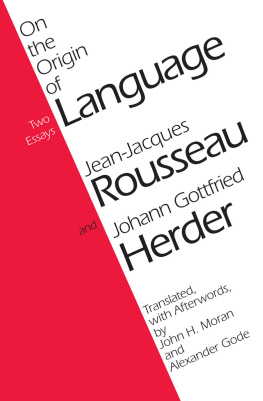READING DERRIDASOF GRAMMATOLOGY
Also available fromContinuum:
Alienation After Derrida, Simon Skempton
Badiou and Derrida, Antonio Calcagno
Between Deleuze and Derrida, edited by Paul Patton and John Protevi
Derrida: Writing Events, Simon Morgan Wortham
Derrida and Disinterest, Sean Gaston
Derrida and Theology, Steven Shakespeare
The Derrida Dictionary, Simon Morgan Wortham
Derridas Writing and Difference: A Readers Guide, Sarah Wood
Derrida, Literature and War, Sean Gaston
Derrida: A Guide for the Perplexed, Julian Wolfreys
Derrida: Profanations, Patrick OConnor
The Domestication of Derrida, Lorenzo Fabbri
Encountering Derrida, edited by Alison Weiner and Simon Morgan Wortham
The Impossible Morning of Jacques Derrida, Sean Gaston
Jacques Derrida: A Biography, Jason Powell
Jacques Derrida: Live Theory, James K.A. Smith
Starting with Derrida, Sean Gaston
Understanding Derrida, edited by Jack Reynolds and Jonathan Roffe
READING DERRIDASOF GRAMMATOLOGY
EDITED BY
SEAN GASTON AND
IAN MACLACHLAN

Continuum International Publishing Group
The Tower Building | 80 Maiden Lane |
11 York Road | Suite 704 |
London SE1 7NX | New York, NY 10038 |
Sean Gaston, Ian Maclachlan and Contributors, 2011
Derrida, Jacques. Translated by Gayatri Chakravorty Spivak. Of Grammatology 1998 The Johns Hopkins University Press. Reprinted with permission of The Johns Hopkins University Press.
All rights reserved. No part of this publication may be reproduced or transmitted in any form or by any means, electronic or mechanical, including photocopying, recording, or any information storage or retrieval system, without prior permission in writing from the publishers.
British Library Cataloguing-in-Publication Data
A catalogue record for this book is available from the British Library.
ISBN: 9781-441-13029-7
Library of Congress Cataloging-in-Publication Data
Reading Derridas Of grammatology / edited by Sean Gaston and Ian Maclachlan.
p. cm.
Includes bibliographical references (p. ) and index.
ISBN 978-1-4411-4676-2 ISBN 978-1-4411-5275-6 1. Derrida, Jacques. De la grammatologie. 2. Language and languagesPhilosophy. I. Gaston, Sean. II. Maclachlan, Ian, 1960
P105.D533R43 2011
401dc22
2010041951
READING DERRIDAS OF GRAMMATOLOGY

CONTENTS
Sean Gaston, Punctuations
Gayatri Chakravorty Spivak, Reading De la grammatologie
PREFATORY NOTE AND ACKNOWLEDGEMENTS
The following collection of readings is organized as far as possible on the division into parts, chapters and sub-sections of Derridas Of Grammatology. One can read it following the sequence of the original text or, by using the table of contents, follow the intervals, gaps and punctuations of an individual reader.
In all cases, the page numbers of Spivaks 1976 English translation will be designated by OG and will be followed, where necessary, by the page numbers of the 1967 French edition, which will be designed by DG. When Spivaks translation has been modified in some fashion this will be noted by trans. mod., while still giving the page numbers for the Spivak edition. Where no published translation is referenced, translations are the contributors own. We have also displayed Jean-Luc Nancys contribution in a parallel French text and English translation.
The work ends with a short biographical reflection by each participant on their first reception and reading of Of Grammatology. This is followed by a list of our contributors institutional affiliations. We are fortunate to have so many readers who have shaped our ongoing understanding of the work of Jacques Derrida.
We would like to thank Nicholas Royle for his support and encouragement during various stages of this project from its inception in 2006. We are especially grateful to the original group who took the time and trouble to attend the one-day meetings at Brunel University in 2007 and Oxford University in 2009, all of whom also brought other keen readers to the project when we decided on a collection of readings. We would also particularly like to thank Jonathan Culler, J. Hillis Miller and Geoffrey Bennington for their kind and ready assistance in the preparation of this work. We are indebted to Sarah Campbell and David Avital at Continuum for their consistent enthusiasm for this distinctive publication.
Sean Gaston and Ian Maclachlan
July 2010
INTRODUCTION
PUNCTUATIONS
So I would answer you by saying, first, that I am trying, precisely, to put myself at a point so that I do not know any longer where I am going.
Jacques Derrida (1966)
I
This project began in 2006 as an attempt to address the question of how to mark the coming fortieth anniversary of the publication of De la grammatologie. In the wake of the recent death of Jacques Derrida in 2004 how could one mark this anniversary without reconstituting an absent and idealized head of the family or falling into a celebratory hagiography? How could we read Of Grammatology today, forty years after its first publication and thirty years after its translation into English? At the same time, it is also perhaps difficult now to appreciate how remarkable Derridas work was when it first appeared in 1967. From its opening attempts to rethink language as an aspect of writing in general, to the assertion of a comprehensive logocentrism, to a contrast between linguistics and the work of Heidegger that culminates in an oscillating reading that at once marks the limitations of Heideggers thought and pushes it towards an engagement with diffrance, to the conclusion that the undertaking of deconstruction is always in a certain way carried away [emporte] by its own work, De la grammatologie was the startling announcement of a formidable and adventurous philosophical project (OG 24; DG 39, trans. mod.).
As is well known, Gayatri Chakravorty Spivaks 1976 translation of Of Grammatology played a significant role in the reception of Derridas work in the Anglo-American academy in the 1970s and 1980s. This reception, especially in English, French and Philosophy departments, was often shaped by existing theoretical conflicts and institutional battles. As Of Grammatology became part of these battles it gained the status of The Book of Derrida, a status that it still enjoys. Throughout the Humanities it has been much mentioned, hardly read and sometimes reduced to a single catchphrase. At times it has seemed as if Derridas work was undergoing the very processes of idealization that he warned about in Of Grammatology.












